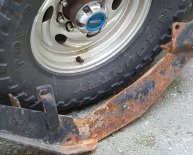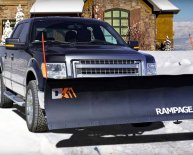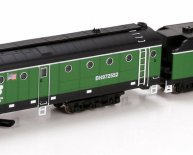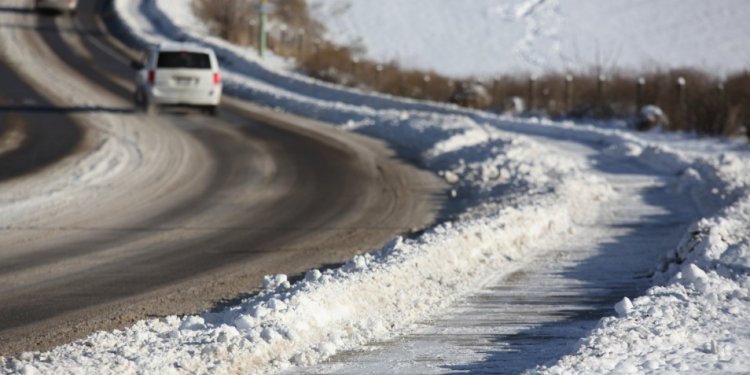
When to Plow Snow
We've gathered our best snow plowing tips from our staff, our customers, and people who push snow around for a living. We're ready to share these tips with you!
- When Is The Best Time To Plow?
We recommend getting out there right after the snow falls. On heavy days, get out there and give a few cursory passes to keep the snow from piling up too deep. If you let snow sit too long it will get hard and dry in very cold conditions. And in warm conditions you'll experience a sloshy mess. Get out there when the work will be less stressful for you, your truck, and your plow.
- Read The Owner's Manual
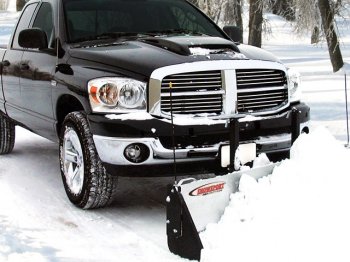
A Snowsport Utility Plow in action
Carefully read both the manual of the snow plow you just purchased and of the vehicle you are attaching it too. Closely follow the safety instructions for installation and operation. This will not only protect you, but your investment. These are some of the largest vehicle accessories we sell and therefore can be the most dangerous. - Snow Piled Close To a Wall
If you are thinking about removing snow that has piled up close to a wall or the edge of a building, raise your blade and drive toward the wall. Once there, lower the plow blade, reverse, and pull the snow away about 20 to 25 feet (or close to it, depending upon your allotted space).Stop and raise your blade again. You now have a manageable snow pile that you can move by regular means. Some personal snow plows won't allow you to do this due to the inability to raise or lower from the cab of your pickup or SUV.
- Invest In Snow Tires
Invest in snow tires or all season tires when preparing your vehicle to plow your driveway or parking lot. Part of the battle on the heaviest snow days is getting a good grip on the road surface. You can't push snow if you have nothing to push back on. When the snow is extra slippery or your parking lot is covered in ice, tires are most important.
- Do You Have Curves?
First time plowing a long driveway with a lot of curves or turns? Do you have a parking lot with a lot of raised islands? Consider staking it before the snow arrives. You can get blue, yellow, or orange fiberglass whips (thin ground stakes) at your local hardware store and use them to outline your snow plow zones. We especially recommend them for landscaped areas with small shrubs, rock work, and curbs.
- Cut Time & Gas: Be Systematic
Move from one side to the other when working a small lot, starting on the side opposite to where you'll be piling your snow. Continually push the snow toward your pile until you've cleared your path. For heavy days you may have to repeat the process. For larger lots, you may need to start in the middle and work your way outward in both directions to achieve the same results. By working in a systematic fashion you cut down on fuel consumption, as well as time spent plowing snow.
- Snow Plow Styles
Front Mount: Mounts to the front end of your car, truck, SUV or CUV and installs with a mounting kit or front hitch.They are one of our number one sellers at RealTruck because of the high visibility while pushing snow.Some installations allow for easy on and off attachment so you can use your vehicle for other purposes during the season.
Rear Mount: This type of plow mounts to the rear of your truck or SUV.It either pushes or pulls snow to its intended final location.What really sets these type of plows apart from front mount plows are the ability to pull snow.They're most noted for the ability to clear a path while backing right out of your garage!

